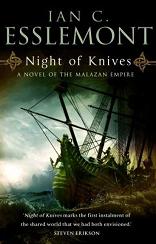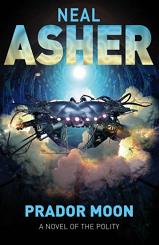As a sequel to his list of fortyeight essential science fiction titles, Paul McAuley has now revealed a similar list of fortyfour essential fantasy and horror titles and he’s asking for help to bring the list up to fifty. Like the other list, it is to be used in teaching a creative writing class or something like that and there’s a not quite arbitrary cutoff year of 1984. Bolded are the ones I read, struck through the ones I don’t think belong. Notice by the way that both lists start with the same book.
Frankenstein, or The Modern Prometheus MARY SHELLEY 1818
Tales of Mystery and Imagination EDGAR ALLAN POE 1838
A Christmas Carol CHARLES DICKENS 1843
Jane Eyre CHARLOTTE BRONTE 1847
The Hunting of the Snark LEWIS CARROLL 1876
Dr Jekyll and Mr Hyde ROBERT LOUIS STEPHENSON 1886
The Well At The World’s End WILLIAM MORRIS 1896
Dracula BRAM STOKER 1897
Ghost Stories of an Antiquary MR JAMES 1904
Kwaidan: Stories and Studies of Strange Things LAFCADIO HEARN 1904
The Wind in the Willows KENNETH GRAHAME 1908
Jurgen JAMES BRANCH CABELL 1919
A Voyage to Arcturus DAVID LINDSAY 1920
The King of Elfland’s Daughter LORD DUNSANY 1924
The Trial FRANZ KAFKA 1925
Lud-in-the-Mist HOPE MIRRLEES 1926
Orlando VIRGINIA WOOLF 1928
The Big Sleep RAYMOND CHANDLER 1939
The Outsider and Others HP LOVECRAFT 1939
Gormenghast MERVYN PEAKE 1946
Night’s Black Agents FRITZ LEIBER JR 1947
The Sword of Rhiannon LEIGH BRACKETT 1953
Conan the Barbarian ROBERT E HOWARD collected 1954
The Lord of the Rings JRR TOLKEIN 1954-5
The Once and Future King TH WHITE 1958
The Haunting of Hill House SHIRLEY JACKSON 1959
The Wierdstone of Brinsingamen ALAN GARNER 1960
The Wolves of Willoughby Chase JOAN AIKEN 1962
Something Wicked This Way Comes RAY BRADBURY 1963
The Book of Imaginary Beings JORGE LUIS BORGES 1967
Ice ANA CAVAN 1967
One Hundred Years of Solitude GABRIEL GARCIA MARQUEZ 1967
Earthsea URSULA LE GUIN 1968-1972
Jirel of Joiry CL MOORE collected 1969
Grendel JOHN GARDNER 1971
The Pastel City M JOHN HARRISON 1971
Carrie STEPHEN KING 1974
Peace GENE WOLFE 1975
Gloriana, or the Unfulfill’d Queen MICHAEL MOORCOCK 1978
The Bloody Chamber and Other Stories ANGELA CARTER 1979
Little, Big JOHN CROWLEY 1981
The Anubis Gates TIM POWERS 1983
The Colour of Magic TERRY PRATCHETT 1983
Mythago Wood ROBERT HOLDSTOCK 1984
Like his science fiction list, this is interesting as it both shows a fairly consistent take on fantasy and horror, consistent with the earlier list, as well as some strong clues to his own influences. There’s a lot of pre-Tolkien British fantasy/weird fiction on the list, quite a few recognised literay classics as well as a fair smattering of intelligent genry fantasy, again mostly pre-Tolkien, and finally the sort of fantasy equivalent to New Wave science fiction like Moorcock’s Gloriana.
It’s cutoff date means it misses a fair few important writers I would’ve put on my list (Glen Cook, Steve Brust, Mary Gentle, Steve Erikson, George R. R. Martin), as does its bias against genre fantasy (Stephen Donaldson for one). The one writer that really jumps out at me however, that fits the mood of the list is Avram Davidson, whose collection Or All the Seas with Oysters should be on it, as it’s an excellent collection by a master of the American fantasy tradition at the peak of his powers.
(The reason I struck out The Big Sleep is not that it’s a bad book, but it’s neither fantasy nor horror in my opinion.)

